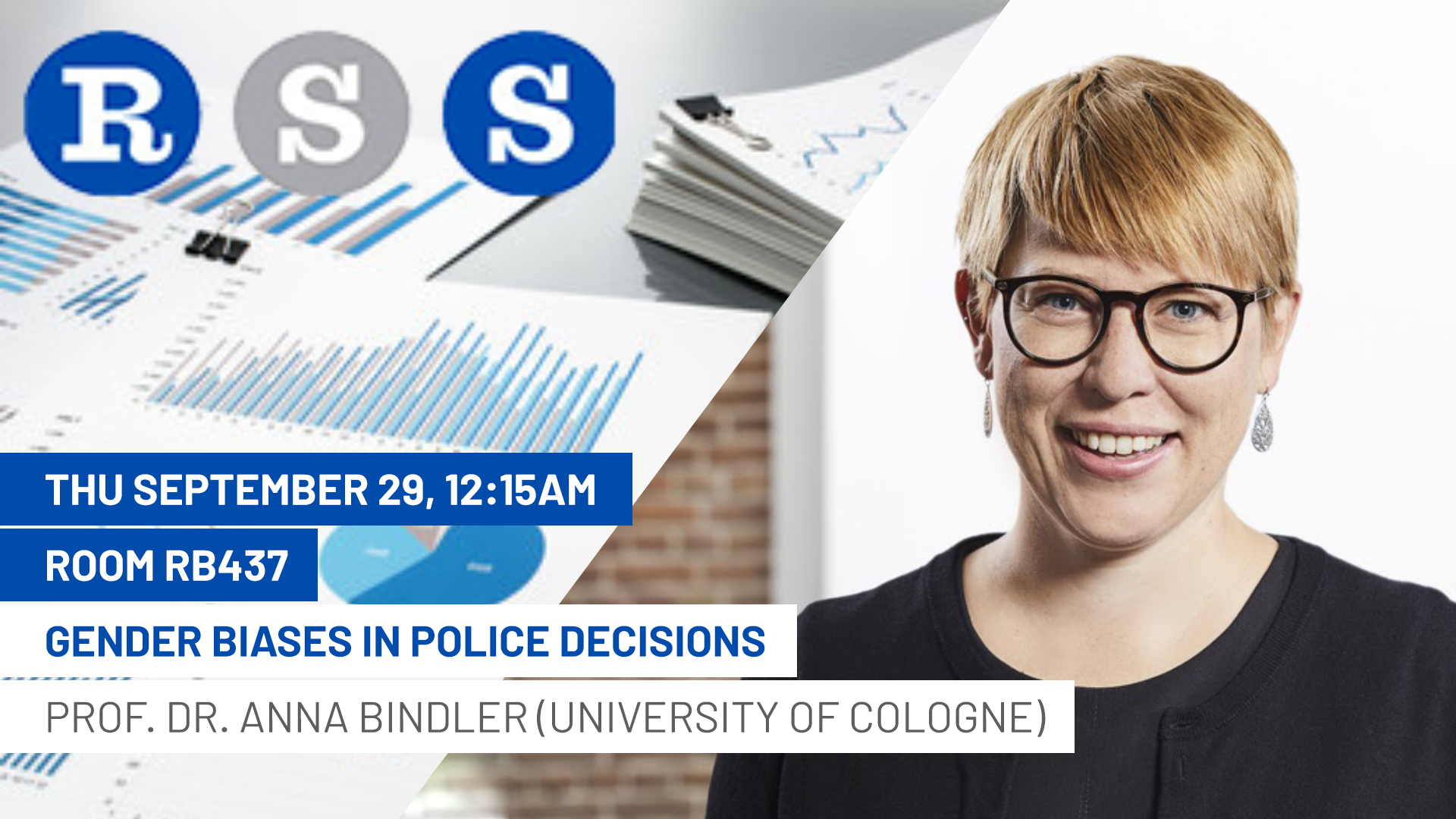Anna Bindler (U. of Cologne) 29.9.2022

V rámci Research Seminar Series in Economics máme tu čest, že nám ve čtvrtek 29.9.2022 od 12:45 do 14:15 v místnosti RB437 bude přednášet prof. Anna Bindler z Univerzity v Kolíně nad Rýnem, která přednese o svém výzkumném projektu s názvem „Gender Biases in Police Decisions“.
BIO: Anna is and Associate Professor in Economics at the University of Cologne and member of the ECONtribute: Markets & Public Policy Cluster of Excellence. Her main fields of expertise are Law and Economics, Labour Economics, and Economics of Crime. She also is a part-time researcher at the Department of Economics/University of Gothenburg, a research affiliate at the CAGE Research Centre/University of Warwick and the CEPR/Labour Economics Programme and a fellow of the GLO. She has published in top journals like the Journal of the European Economic Association, the Review of Economics and Statistics, or the American Economic Journal: Economic Policy.
ABSTRACT: This paper studies the gender gap in officer decisions to frisk male and female subjects in nearly 40,000 stop and frisk interactions in Seattle from 2015-2019. Female subjects are 14 percentage points less likely to be frisked after being stopped by the police, but this gap closes by 46% when the officer is female. This cross-gender pattern in frisks is not driven by the systematic assignment of female officers to female subjects, and is robust to conditioning on officer fixed effects and a large set of observable subject, stop, and officer characteristics. The cross-patterns are consistent with preference-based discrimination, in which male and female officers face a differential cost to frisking female subjects. A similar crossing pattern in hit rates – i.e., finding a weapon – (conditional on a frisk) suggests that male officers may frisk female subjects less thoroughly and that these costs are at least in part driven by a perceived inappropriateness norm. We do not, however, find that the start of #MeToo or the staggered rollout of body cameras, which make concerns about inappropriateness and accountability more salient, impact frisk rates. Finally, we demonstrate that increasing female representation in policing could reduce the gender frisk gap both directly but also indirectly by impacting the behavior of male officers assigned to mixed gender crews or squads with female supervisors.